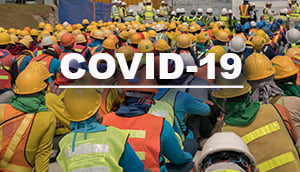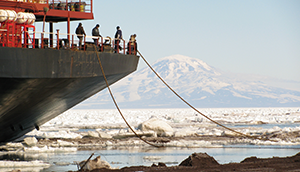 On March 17, 2020 the City of Boston became the first city, but not likely the last city to close down all construction projects currently in progress due to the COVID-19 crisis. This raises the question of what impact that will have on meeting the schedules and terms of the various construction contracts. Will liquidated damages be assessed if a contract does not meet its contractual schedule?
On March 17, 2020 the City of Boston became the first city, but not likely the last city to close down all construction projects currently in progress due to the COVID-19 crisis. This raises the question of what impact that will have on meeting the schedules and terms of the various construction contracts. Will liquidated damages be assessed if a contract does not meet its contractual schedule?
The dictionary defines force majeure as an unforeseeable circumstance that prevents someone from fulfilling a contract. Many construction contracts, such as the AIA standard 201, include a force majeure clause that is intended to remove liability for natural and unavoidable catastrophes that interrupt the expected course of events.
The AIA’s standard form A201 General Conditions contain the following clause:
8.3.1 If the contractor is delayed at any time in the commencement or progress of the Work by (1) an act or neglect of the Owner or Architect, or of an employee of either, or of a separate contractor employed by the Owner; or Separate Contractor; (2) by change ordered in the Work; or (3) by labor disputes, fire, unusual delay in deliveries, unavoidable casualties or, adverse weather conditions documented in accordance with Section 15.1.6.2, or other causes beyond the Contractor’s control; or (4) by delay authorized by the Owner pending mediation and arbitration; or binding dispute resolution; or (5) by other causes that the Contractor asserts, and the Architect determines may, justify delay, then the Contract Time shall be extended by Change Order for such reasonable time as the Architect may determine. (Emphasis added.)
How current events could apply
On March 11, 2020 The World Health Organization declared the COVID-19 outbreak as a pandemic. On March 13, 2020, the President of the United States declared a national emergency. Governors, Mayors and business owners have been shutting down our normal life to enforce social distancing in response to the virus. We have all seen business, schools and restaurants close their doors until further notice. Many seem to suggest that we prepare for the possibility that we have not seen the worst of this yet. These events would arguably present a good case for delays beyond the Contractor’s control.
As we know, much of what we use in construction material(s) are imported from China and U.S. ports, as of the date of this article, are down in volume of at least 20% this year over last – cost of material increases and time delays will most likely be the impact.
As mentioned before, the AIA standard 201 General Conditions force majeure clause may address some of the impact of this crisis. However, it’s not a foregone conclusion that this condition exists without the architect’s agreement and if AIA 201 with the language cited above is not used – this contingency may not be addressed at all.
Hence, a strategy for negotiating cost increases and time delays such as substituting materials and equipment to U.S. made products and construction completion extension by Change Order must be specific and inclusive in contractual agreements.
Like many obstacles we face as a nation – we will get through this but it's best to be prepared for as many eventualities as possible. Should you have any questions regarding your own projects, or your construction client's project, please reach out to your local Old Republic Surety contract underwriter. Stay informed, stay safe and wash your hands.
Topics

Darrel Lamb leads Old Republic Surety's West Region surety operation in all facets of contract surety including business development, underwriting, marketing, agency management, strategic vision, operations, compliance, and employee development. Territory includes Washington, Oregon, Montana, Idaho, Hawaii, Alaska, California, and Utah. Darrel has over 30 years of proven success and is skilled in developing relationships with internal and external stakeholders to drive superior business results.


